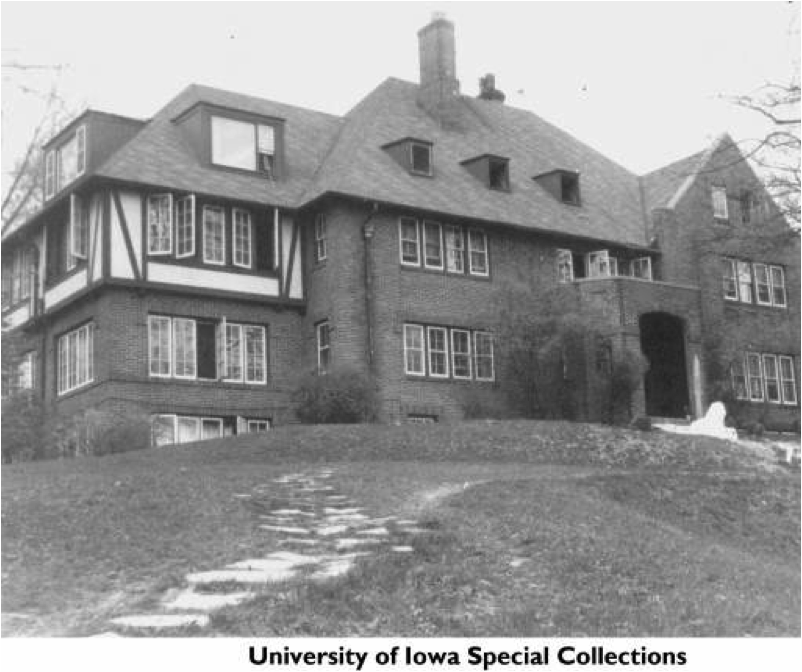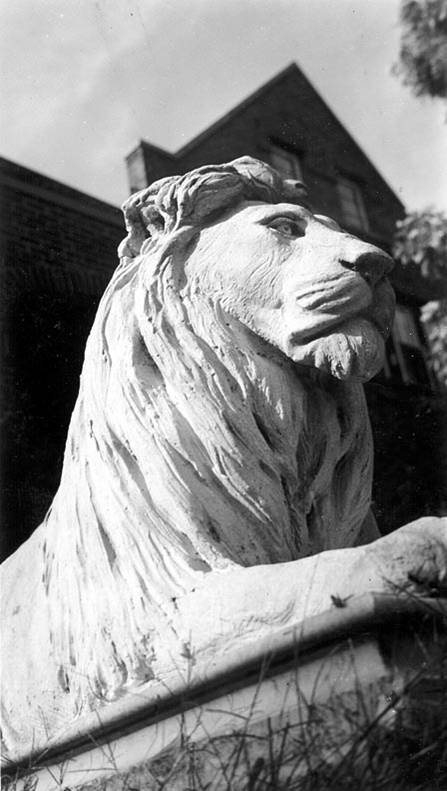
Telling It Like It Is: The legendary Flip Klinger shoots straight about his life as an SAE brother
Director and Chairman, Communications, Iowa Beta Alumni Association
This is the first in a two-part series, "Telling It Like It Is," that takes a look at Iowa Beta legend Flip Klinger.
Having heard incredible stories about Phillip D. “Flip” Klinger (IABE ’64) over the years, I wanted to interview him for the alumni association newsletter. I had heard that whenever there was a momentous occasion in the modern era of SAE history, Flip usually was right in the middle of it.
And those who know Flip will tell you that if there was any thought of shenanigans, it was a strong likelihood that he was one of the ringleaders.
The minute I got on the phone with him, I found out the rumors are all true. There was no warm-up conversation necessary. As soon as he answered the phone, the wily attorney spoke from his Cedar Rapids, Iowa residence like he was bouncing around the ring and throwing shadow jabs. The first thing he asked me when I introduced myself was from where I was calling.
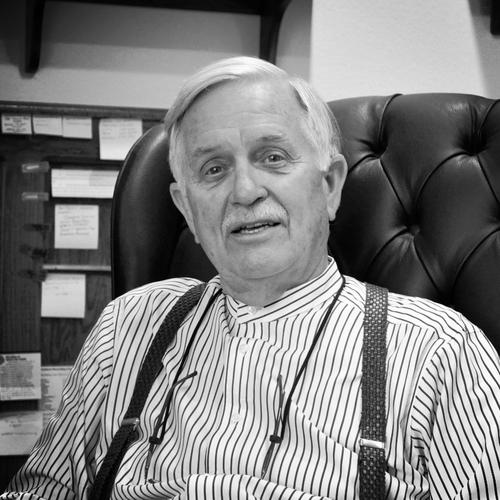
“I’m in Houston,” I said.
“Well I don’t even want to talk to you…It’s colder than hell up here! It’s going to be a low tomorrow night of 7 below and tomorrow a high of 8!”
“At least you have something to look forward to,” I quipped.
“Blow it out your ass!” he laughed.
Yep, just like that, the ride began, full speed ahead. And just so you know, that is not the first time Klinger has used that endearing phrase. He owns a '98 SK8 Jaguar where the license boldy proclaims the letters BIOYA. (The ride has only 27,000 miles if you want to make an offer.)
“It’s my own fault I stayed here,” he said. “But I came back home. I was born and raised in Cedar Rapids and have lived here all my life.
“I am a classic in this town. People joke about 'Bohemies' because we got a big Bohemian population and I am a Bohemie kid. All of the people in my neighborhood spoke fluent Czechoslovakian.”
I then asked, “So now that you are one of the senior Czechs, you have to keep the Czechs in check…”
“That’s right,” he said. “Most of them are smart and got the hell out of here!”

Klinger is the son of Clarence Francis and Kathleen Klinger. His father was known as “Cones.”
“How did you get the name, ‘Flip?’ ” I inquired.
“I don’t have the slightest idea but I have been called that since I was two years old,” he said. “I list the name, 'Flip', in the phone book because people don’t know me as Phillip.”
Flip graduated from Washington High School in 1960. Washington was a newly built school at the time, resulting from the consolidation of McKinley and Franklin high schools. His graduating class of about 400 students was the first to go through all four years there. The class of 1960 has had a reunion every five years since it graduated and Klinger is getting prepared for the 55-year reunion.
“It’s a hoot!” he said, “The class gets smaller every year. You stand around and say, ‘OK, who died now?”
“How old are you?” I asked.
“I’m 72.”
“Wow,” I said, “I feel young. I am 52 and my hair is not silver yet.”
“Oh hell, my hair is silver, and I raised my rates when that happened. I give the same advice, but everyone wants a gray-haired lawyer, so, OK fine, you are going to have to pay more for it.”
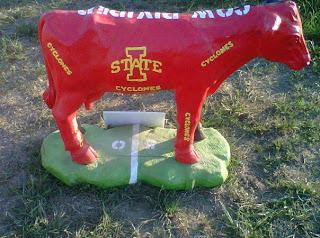
So how did this Bohemie from Cedar Rapids make his way to Iowa City and get a law degree?
“In those days, people did not have that many choices,” Klinger said. “A lot of families, like mine, did not have the money to send a kid anyplace else. Your options were Iowa, Iowa State or Northern Iowa, which in those days was a teacher’s college. Nobody wanted to go to Iowa State because we referred to it as Moo U, as it was the agricultural school.”
Klinger has been a strong supporter of Iowa Beta throughout his adult life. He was instrumental in securing the interim house at 707 N. Dubuque in 1992, helping the Chapter move out of The Lodge on South Dubuque, and in regaining the SAE house at 303 N. Riverside (now called 302 Ridgeland) in 1996. He continues to represent the house corporation and the Iowa Beta Alumni Association as the Registered Agent for the state of Iowa and provides sage advice whenever called upon to do so.
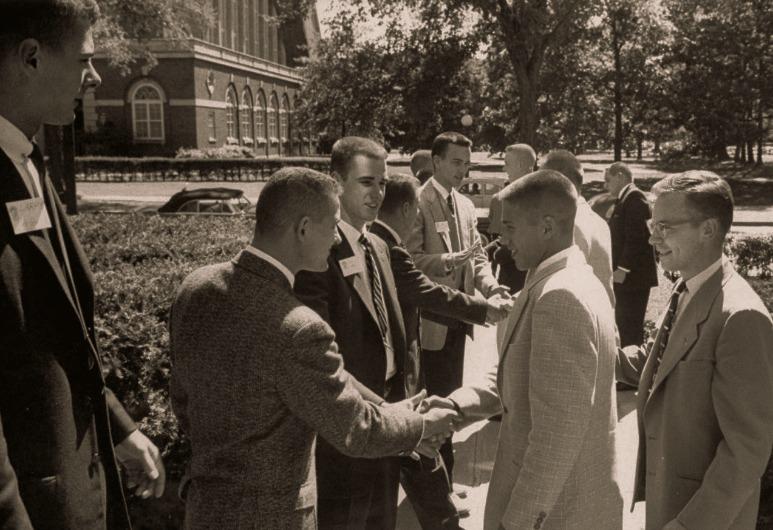
Klinger was one of five guys from the 1960 class of Washington High that pledged SAE. Joining him were Al Kessler (IABE ’64), Roger Klinzman (IABE ’64), Rick High (IABE ’64) and Jack Wright. These brothers have all died, making Klinger the sole survivor.
The five young men stepped on campus in the fall of 1960 and went through rush. Rush started the week before classes began and students would pack up and drive to campus. Men stayed in the Quadrangle and the women would reside in Courier Hall across the river.
“The first two days, you visited every fraternity house and then you got invites to return,” Klinger said. “And then the houses kept narrowing down the number of people they wanted to extend a bid to. My final four were SAE, Phi Kappa Psi, Delta Upsilon and Phi Gamma Delta.
“SAE was my top choice and Kessler, Klinzman and I all got bids before the official time you could extend one. They were supposed to give you bids on the last day, but no, we were taken upstairs in the SAE house and given bids the night before.”
“So was that an NCAA recruiting violation?” I asked.
“Oh yeah,” he laughed. “It was different in those days. And we did not know it at the time but our pledge trainer was a guy named Roger Helm (IABE ’61). He graduated from Franklin High School the year before we all went to Washington. Franklin would have been the high school all of us would have gone to if Washington hadn’t been built. And he had twin sisters, Pat and Pam Helm, who also were in our graduating class. So Roger had inside information from his sisters about who we were.”
Klinger pledged the Iowa Beta chapter and was initiated into the fraternity on March 9, 1961 and received SAE badge number 110365. He lived in the SAE house all four years of his undergraduate experience. His first roommate was Howard Kennedy (IABE ’62) and the two lived on the second floor.
“Who was your next roommate?” I asked.
“Oh for Christ sake, I am trying to think of all this stuff,” Klinger said. “There were two-man and three-man rooms and you changed rooms and roommates every semester. In those days, we had 50 guys living in the house. We were packed in there liked cord wood.
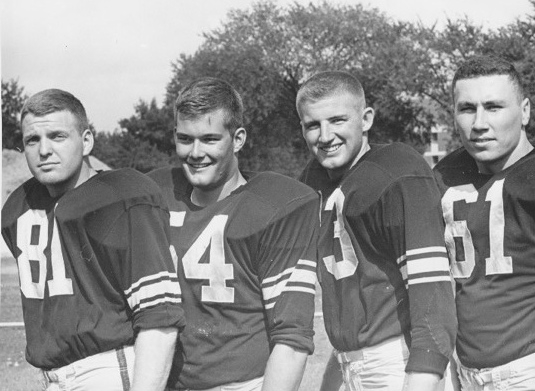
“And we had the football players too. We had Mike Riley (IABE ’64), Bob Sherman (IABE ’62), Gary Fletcher (IABE ’63), Bill Niedbala (IABE ’64) and John McSwaney (IABE ’64).”
Besides the Cedar Rapids crew, Klinger was great friends with Steve Schultz (IABE ’65), who was a year younger.
“Schultz was a rebel,” he said. “He was always going to do things his way. He didn’t care. If you don’t like it, too bad. That just the way he was. He was kind of a lone wolf but if you wanted to get the contrarian opinion, go talk to Schultz.”
Klinger and Schultz still see each other a couple of times a year.
Klinger said the ladies men during that period were Rhodes Lawton (IABE ’62) and Bob Robertson (IABE ’64) .
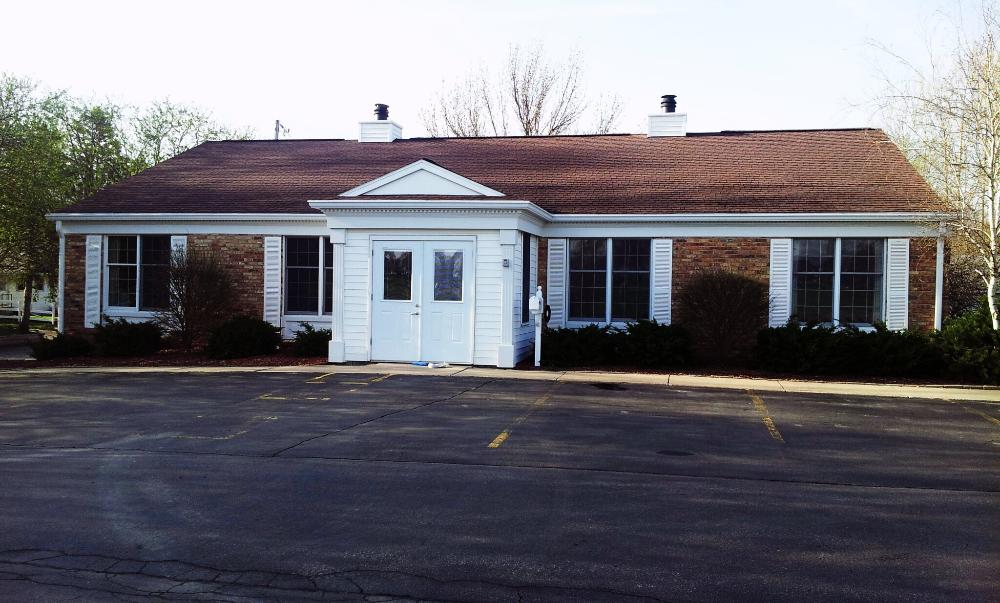
Klinger is a founding partner in Klinger, Robinson & Ford law practice. After graduating law school in 1968, he started as an assistant county attorney part time performing civil work in the mornings and then worked on his private practice in the afternoons. He did this until 1973. In 1979, his partner, Gary Robinson, built the building they currently work in and their new law firm was born. Robinson died in the late 1990s. Today, the firm has five partners.
In his office practice, Klinger focuses on real estate and business entity matters as well as wills, estate and probate.
“We probably have about 3,000 wills in storage in a vault at one of the banks,” he said, “And every morning we read the obituaries because if find out that a client died, we get a hold of the heirs and work with them. Well Jeezus Christ, about 60 percent of the people I am reading about are younger than I am! It’s scary.”
Klinger’s rise to legal stardom began after he graduated in June of 1964 with a bachelor’s degree in business administration. With diploma in hand, he returned to Cedar Rapids to work in a lathe shop at night.
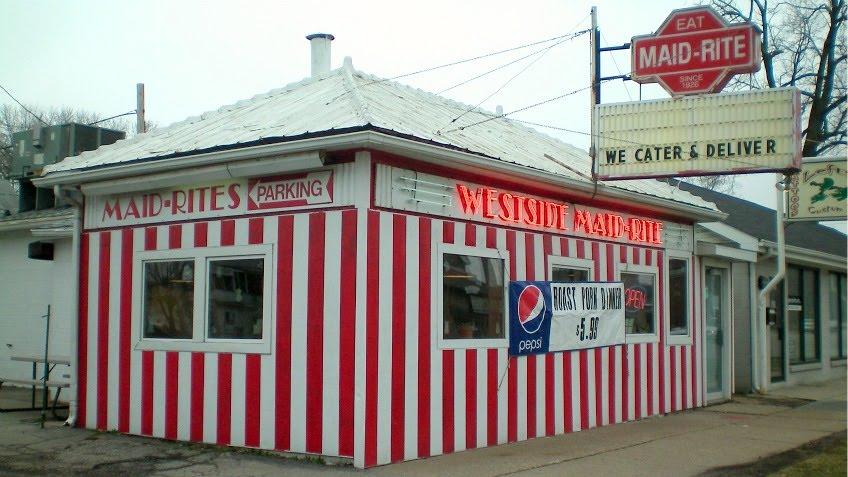
“I got up one Thursday August morning and my dad, who was working at Collin’s Radio, looked at me before heading to work and said, ‘what you are doing here is interesting but basically, you need to figure out what you want to do.’
“Basically, I was puttering around and drinking. So I had that night off work and met some of my buddies at the Eastside Maid-Rite. It was fairly obvious I did not want to go to work. This was all during the Cuban Missile Crisis and I had a bunch of buddies who were in the 82 nd Airborne at Fort Bragg in North Carolina. They were on red alert and I did not want to go into the military.
“So Friday morning I got into my car and drove down to Iowa City and went into the registrar’s office and said, ‘Hi, I got my bachelor’s in business administration and would like to go to graduate school…what do you have?
“The woman said, the law school takes 200 students and we have 198 applicants. Now this is before the LSATs. So I asked, ‘what does it take to get in?’ And she says ‘sign here and give me a check for $25 for a deposit.’ So I signed and gave her the $25 and that is how I went to law school!”
When Klinger drove back home he told his dad his new plan.
“My dad said, ‘That’s great son, how in the BLEEP are you going to pay for it?’ And I told him, ‘well, I have not thought about that yet but school does not start for six weeks so let me figure that out.’ ”
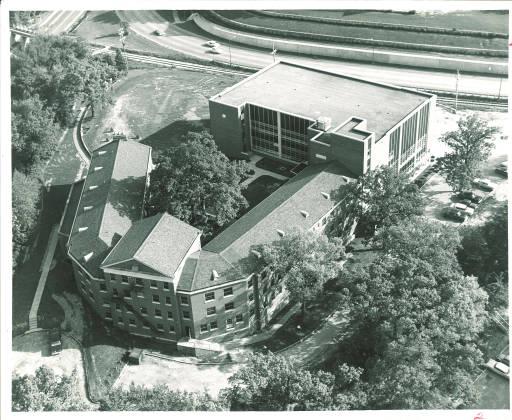
Klingler’s solution was to work at DeWoody Precision Screw Machine shop 40 hours a week, which was against the law school’s rules. Each day, he commuted to the law school in Iowa City. Hal DeWoody told Klinger that he did not care when he put in the hours, but put in a strong 40 hours a week. Klingler would work at the shop in the afternoon and early evenings after classes.
“In my last year of law school in the fall, I collared this one guy and I ask him if he could tell me where the library is. And the guy says, ‘well, yes…what year are you?”
“I’m a senior,” said Klingler.
“Well before I tell you where the library is, you are going to come into my office and talk to me,” the guy said.
Klinger said, “OK, who are you?”
“I am the new dean. How can you be a senior in this law school and not know where the law library is?”
“Well, I commute back and forth to Cedar Rapids,” said Klinger. “I work 40 hours a week.”
Dean (David) Vernon replied, “You know the rules are you are not supposed to work over 15.”
“Well, I appreciate that,” Klinger said, “But I would not be here if didn’t work.”
The budding lawyer was able to defend his case to Vernon and the fact that he was a senior helped his cause. Klinger was able to keep up with the books by going to the Linn County law library in the courthouse. It also worked to Klinger’s benefit because he did not have the competition for volumes like he would have back in Iowa City.
“I’m a lawyer, hell, we never use books in the library! Not the county law library anyway!”
--------------------------------------------------------------------------------------------------------------------------------------------
In part two of this series, which will appear in the April newsletter, we will take a look at some of Flip's memories of his undergraduate years living in the SAE house, his 25 years as a Hawkeye football season ticket holder and his unique definition of golf.
IABE assists SAE with the colony investigation at Illinois State
When Iowa Beta returns to campus in fall 2016, it will need to go through the colonization process before becoming a full active chapter again. The good news is that it can look east to Illinois State University for a model it can emulate.
Iowa Beta Alumni Association president Marc Rosenow (IABE '86) was asked by the SAE Fraternity Center to chair the Investigation Committee of the Illinois Tau Alpha Phoenix colony. The investigation is the final major step before a Phoenix colony is re-chartered. Rosenow was pleased to assist, recognizing that this was the same process that Iowa Beta will soon be undertaking.
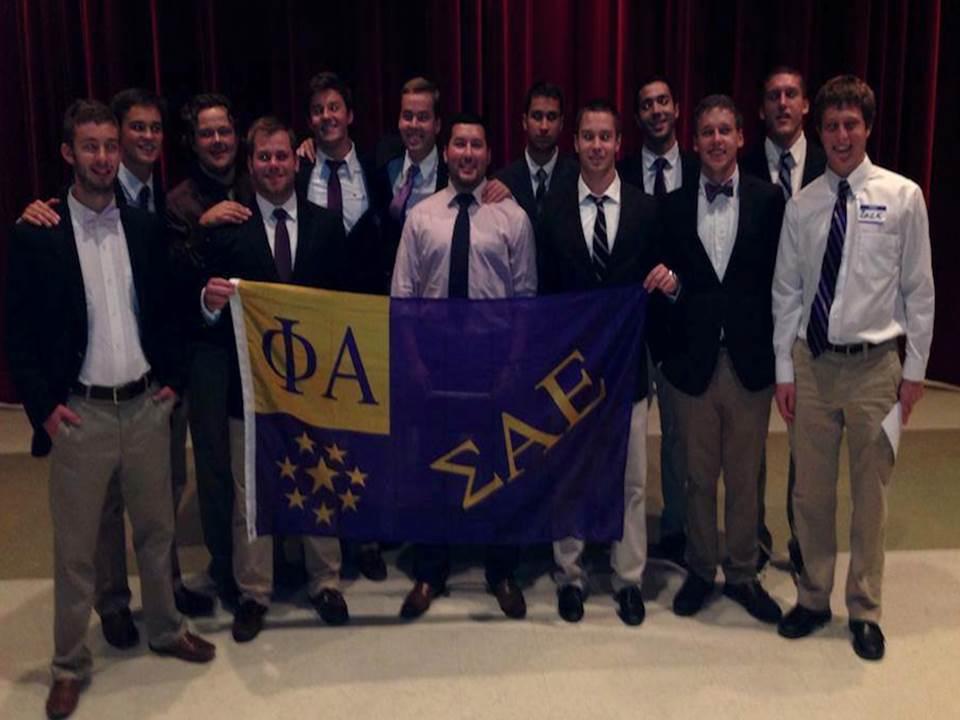
A Phoenix colony is the status Sigma Alpha Epsilon grants to historic chapters who are reviving their charter after a period of dormancy. Once a number of milestones have been achieved and goals have been met, the Phoenix colony will receive its charter back and become a full active chapter of the fraternity.
Originally chartered on April 7, 1990, the Illinois Tau Alpha chapter went off campus several years ago. In 2013, an interest group was formed by several upstanding young men and the organization quickly became an SAE colony. Today, they have 66 members, their overall GPA is 3.0 and they raised $3,700 for various charities.
The Investigation Committee evaluates the colony's progress against benchmarks in the following key areas: Alumni Relations, Chapter Management, Financial Management, Housing, Member Education, Recruitment, Ritual, Scholarship, Service & Philanthropy, Health & Safety, and University Relations .
"It was an honor to chair this committee and learn the process that will impact our own colony next year," said Rosenow. "The men at Illinois State are True Gentlemen and we can learn from their experience. Iowa Beta will be stronger as a result."
The colony process is as follows:
1. Authorization to begin the colony process by SAE’s Extension Advisory Committee
Beginning later this year, the SAE Fraternity Service Center staff will work with the alumni association and the University of Iowa to form an Alumni Advisory Board to support the chartering process. The Advisory Board will build a sustaining network of people to advise the Chapter in several key areas for years to come. Next, an official "interest group" of undergraduate students will be recruited to start the colony. Currently, there are 4 Iowa Beta legacies who have expressed in an interest in becoming re-founding fathers of Iowa Beta.
2. Membership selection
In order to meet the minimum membership requirement to formally colonize, the interest group’s undergraduate member size should be at least 50 percent of the average fraternity size at Iowa, with a 15-man minimum. Presently, a 2.5 GPA is required for membership into SAE.

3. Colonization
After the interest group meets the membership selection requirements, it then must receive approval by a combination of alumni volunteers and the SAE Fraternity Service Center staff to be considered a Phoenix colony. When that is accomplished, alumni will conduct a colonization ritual ceremony, which makes the group formally recognized by the Fraternity, and allows the group to officially begin making progress toward re-obtaining its charter.
4. Officer and Member Development
The collegiate men invited to join Sigma Alpha Epsilon will begin working with headquarters staff and alumni to identify its leaders and to begin the new-member education process.
Building upon best practices from SAE chapters across the country, Fraternity Service Center staff and alumni work with the group to develop all of the necessary programs, policies and training to establish a successful colony and, later, a successful chapter.

5. Follow-Up
Following colonization, the Fraternity Service Center National Coordinator of Extension will visit Iowa at least once a semester but as often as needed by the Iowa Beta Phoenix colony. The Coordinator of Extension will also be in constant contact with alumni, undergraduate officers and campus officials.
Sigma Alpha Epsilon views the establishment of a colony as an investment in the Fraternity and the host campus. The Fraternity will do everything it can to protect that investment and ensure that Iowa Beta establishes the most successful colony possible.
6. Periodic Evaluation and Investigation
The colony’s progress will be evaluated on a monthly basis. National staff and the Alumni Advisory Board also will make evaluations during regular follow-up visits and through discussions with other alumni, undergraduate officers and campus officials. These evaluations will determine the progress and strength of the colony. An Investigation Committee will be appointed to make recommendations on the colony's application for its charter. If the application is approved, the full fraternity votes on the reinstallation.
7. Reinstallation of the Iowa Beta chapter
Sigma Alpha Epsilon’s goal is to reinstall the Iowa Beta chapter 12 to 18 months after the colonization, but that time frame is dependent on the overall success and development of the colony. Upon completion of all colony requirements and approval of the colony's re-installation application, SAE staff and alumni members will conduct the Chapter reinstallation and the formal Initiation Ceremony of its members.
At this point, Iowa Beta will return to its rightful place as one of the finest chapters in the SAE realm.
8. Ongoing Support
After the reinstallation of the Iowa Beta chapter, Fraternity Service Center staff will continue to provide support to the chapter through regular staff and alumni visits and other lines of communication at least twice a year and through the Fraternity's numerous conferences, mailings and other resources. Alumni also will continue to advise the group to help ensure that the chapter continues to live up to Sigma Alpha Epsilon’s high standards.
For more information about how you can help, please email: marc.rosenow@iowabetasae.org
QUIZ ANSWER: B. Eleven IABE pledge classes were initiated on a Founders Day anniversary
Sigma Alpha Epsilon was founded on March 9, 1856. That date is considered to be the fraternity's "Founders Day" and its anniversary is celebrated by SAE brothers each year.
Since Iowa Beta's chartering as an SAE chapter on February 11, 1905, there have been eleven initiation ceremonies for pledge classes on a Founders Day; including the initiation held on the fraternity's centennial on March 9, 1956.
In several years, Iowa Beta has conducted initiation ceremonies near that date, but only eleven pledge classes in the Chapter's 110 year history were initiated precisely on a Founders Day anniversary.
Iowa Beta conducted initiation ceremonies on March 9 in the following years: 1922, 1923, 1924, 1929, 1935, 1941, 1956, 1958, 1961, 1968 and 1969.
Did You Know?
Presidents’ Day is an American holiday celebrated each year on the third Monday in February.
In 1885, Congress established February 22nd as a federal holiday in recognition of President George Washington’s birthday. Subsequently, most US states started to celebrate Abraham Lincoln’s birthday (which is on February 12) as well.
In 1971, the federal holiday was moved to the third Monday in February in compliance with the Uniform Monday Holiday Act, which was designed to create more three-day weekends.
Still officially called “Washington’s Birthday” by the federal government, it is more commonly known today as “Presidents’ Day” and honors all those who have served in the role of president of the United States.
SAE's only member to serve as president so far was William McKinley (Mount Union College). First elected in 1896, McKinley became the nation's 25th Commander in Chief.
McKinley was an extremely popular leader and presided over a period of great economic prosperity at home and decisive military victory abroad. In September 1901, McKinley was assassinated by an anarchist in Buffalo, New York six months into his second term of office.
On March 3, 1897, the day before his first inauguration as president, Sigma Alpha Epsilon presented President-elect McKinley with a sparkling diamond-studded member badge. It was the only piece of jewelry that McKinley wore during his inauguration ceremony.
The fraternity's 1896 Convention of St. Louis authorized the purchase and presentation of the badge to the newly elected American president. It contained sixteen of the highest quality diamonds and was simply inscribed on the back : "Wm. McKinley from SAE."
After his assassination, McKinley's daughter became the custodian of his treasured SAE badge. Today, its whereabouts are unknown.
President and Mrs. McKinley are buried at the McKinley Memorial Park in Canton, Ohio.
IABE AA Board of
Director Opening
Are you looking for an opportunity to serve?
The Iowa Beta Alumni Association now has an opening on its Board of Directors.
Bill Hayes (IABE ’92), who has served on the Iowa Beta Alumni Association’s Board of Directors for the past 9 years, has decided to retire leaving an open Board seat.
“We are extremely grateful to Bill Hayes for his many years of dedicated service,” said Iowa Beta Alumni Association president Marc Rosenow (IABE ’86). “Bill served the alumni association Board with honor and distinction and his achievements over the years have been numerous. He is a True Gentleman and a great friend.”
The Board of Directors is the governing body of the Iowa Beta Alumni Association. It sets the direction and strategy of the organization and implements its programs and initiatives. Regular business meetings are conducted via monthly conference calls.
The alumni association is staffed by volunteers. Nobody receives any compensation of any kind for their time or effort.
The Iowa Beta Alumni Association is recognized by the IRS as 501(c)(3) nonprofit organization and is dedicated to the education and development of True Gentlemen. Additionally, it will be preparing for the re-launch of the Iowa Beta chapter in 2016.
If you are interested in serving, please contact Iowa Beta Alumni Association secretary Brian McKenzie (IABE '08) by clicking the "volunteer" button below:
Thank you for considering this opportunity to serve your brothers and Phi Alpha!
Annual Campaign 2015 for Iowa Beta has begun
The Iowa Beta Alumni Association is nearly 300 Brothers strong!
More than just bragging rights, a strong alumni base means that the Iowa Beta chapter returns to campus in fall 2016 with the full confidence and support of Sigma Alpha Epsilon's Fraternity Service Center and the University of Iowa.
We want all of our brothers to participate in the Alumni Association so there is no fee of any kind to join.
But, we do need private support to fund our programs and initiatives, offer scholarships to our future undergraduate brothers, and maintain the level of activity we have achieved.
We invite you to participate in the Iowa Beta Alumni Annual Fund, which runs from January 1 - December 31. Some brothers can give more, some less, but your gift of any size will make a difference.
Please take this opportunity now to support our programs and initiatives as we prepare for Iowa Beta's return. Your gift is tax deductible to fullest extent of the law.
Please click the "DONATE" button to make a contribution today or please mail a check to the Iowa Beta Alumni Association at the address below.
Thank you!
Graduation BBQ dinner set for Class of 2015
The graduation BBQ for the Iowa Beta Class of 2015 will take place Saturday, May 9, 2015 in Iowa City. Each year the alumni association hosts a celebration for our newest alumni. This will be the final graduation event prior to Iowa Beta returning to campus next fall.
The event will begin at 3:00 pm with a business meeting, followed by Ritual and the BBQ. More details to follow.
All alumni are welcome. Please click the RSVP button if you would like to attend.
Be a part of the nation's best site
The Iowa Beta Alumni Association is looking for writers who want to be part of the best alumni newsletter in the United States.
This is a chance for you to show off your writing skills, cover the news of the fraternity and speak to the many men in our brotherhood who are making a big difference.
To inquire about a fun and rewarding experience the serves our distinguished alumni, please click the "Newsletter" button below.


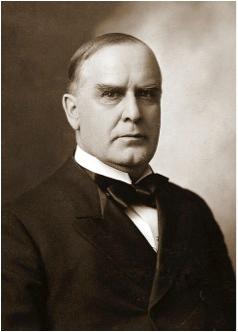
.png)



